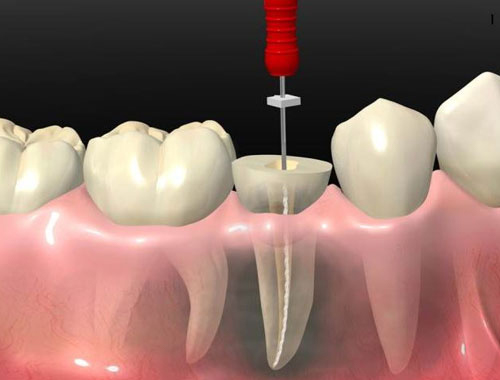When tooth decay or infection reaches the pulp, the inner part of your tooth, root canal treatment (RCT) is often the best way to save your tooth and prevent further damage. With modern techniques, RCT is a comfortable and highly effective procedure that can restore your tooth to full function and health.
What is Root Canal Treatment?
Root Canal Treatment, commonly known as RCT, is a dental procedure used to treat infection or inflammation inside the tooth. During the procedure, the infected or damaged pulp (the soft tissue inside your tooth containing nerves and blood vessels) is removed, and the inside of the tooth is thoroughly cleaned and sealed to prevent further infection.
Signs You May Need a Root Canal:
- Severe tooth pain, especially when chewing or applying pressure
- Prolonged sensitivity to hot or cold temperatures
- Swelling or tenderness in the gums around the affected tooth
- Darkening or discoloration of the tooth
- A recurring pimple or abscess on the gums
If you experience any of these symptoms, it’s important to seek prompt dental care to avoid complications and preserve your tooth.
The Root Canal Procedure:
- Diagnosis & X-ray: Your dentist will begin by examining the tooth and taking an X-ray to assess the extent of the infection or damage.
- Local Anesthesia: To ensure your comfort, a local anesthetic will be applied to numb the tooth and surrounding area.
- Cleaning the Canal: A small opening is made in the tooth to access the infected pulp. Using specialized tools, the dentist will remove the infected tissue and thoroughly clean the root canal.
- Filling the Canal: After cleaning, the root canals are filled with a biocompatible material called gutta-percha, which seals the space and prevents future infection.
- Restoration: In most cases, a crown is placed on the tooth after the root canal to protect and strengthen it, ensuring it functions like a normal, healthy tooth.
Benefits of Root Canal Treatment:
- Pain Relief: RCT eliminates the source of infection and pain, providing long-term relief.
- Saves Your Natural Tooth: Root canal treatment allows you to keep your natural tooth, avoiding the need for extraction.
- Restored Function: With a crown, the treated tooth will function like any other, allowing you to eat and chew comfortably.
- Prevents Spread of Infection: By removing the infected pulp, RCT helps stop the spread of infection to other teeth and gums.
Aftercare and Recovery:
After your root canal, it’s normal to experience mild discomfort or sensitivity, which usually subsides within a few days. Your dentist will provide instructions on how to care for the treated tooth, including pain management, oral hygiene, and follow-up visits. Once the permanent crown is placed, you can enjoy full function of your tooth again.



